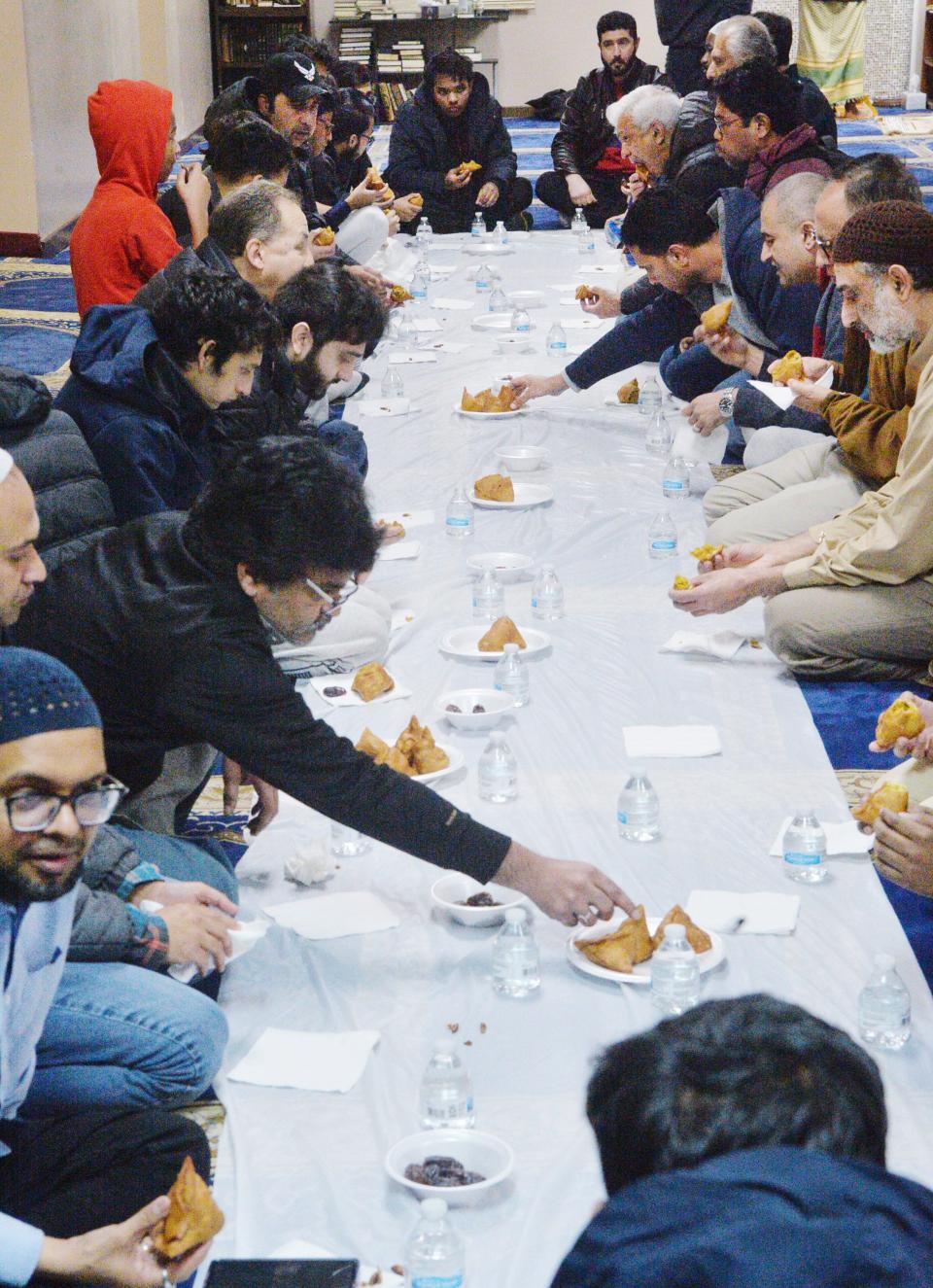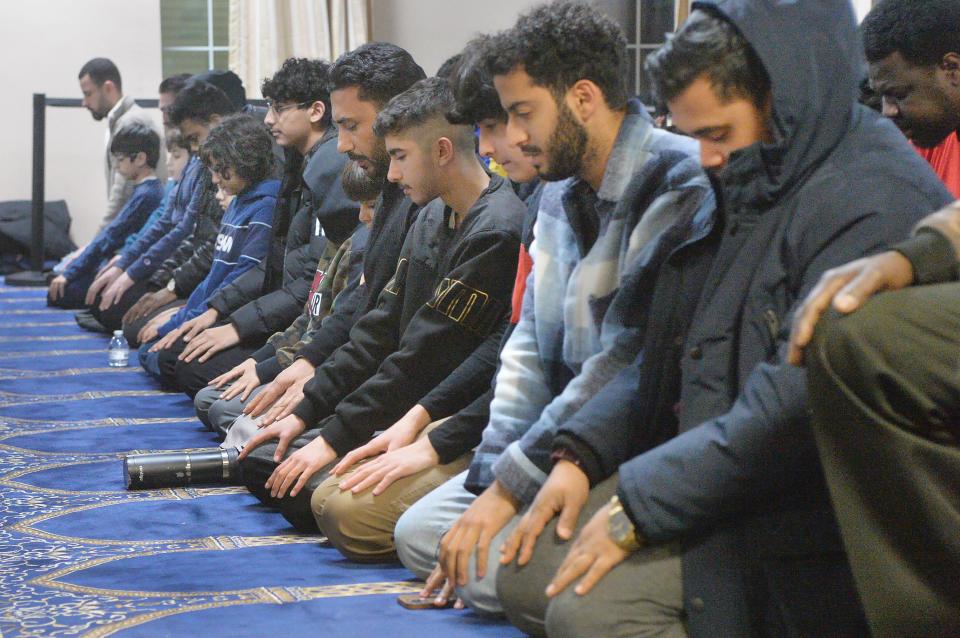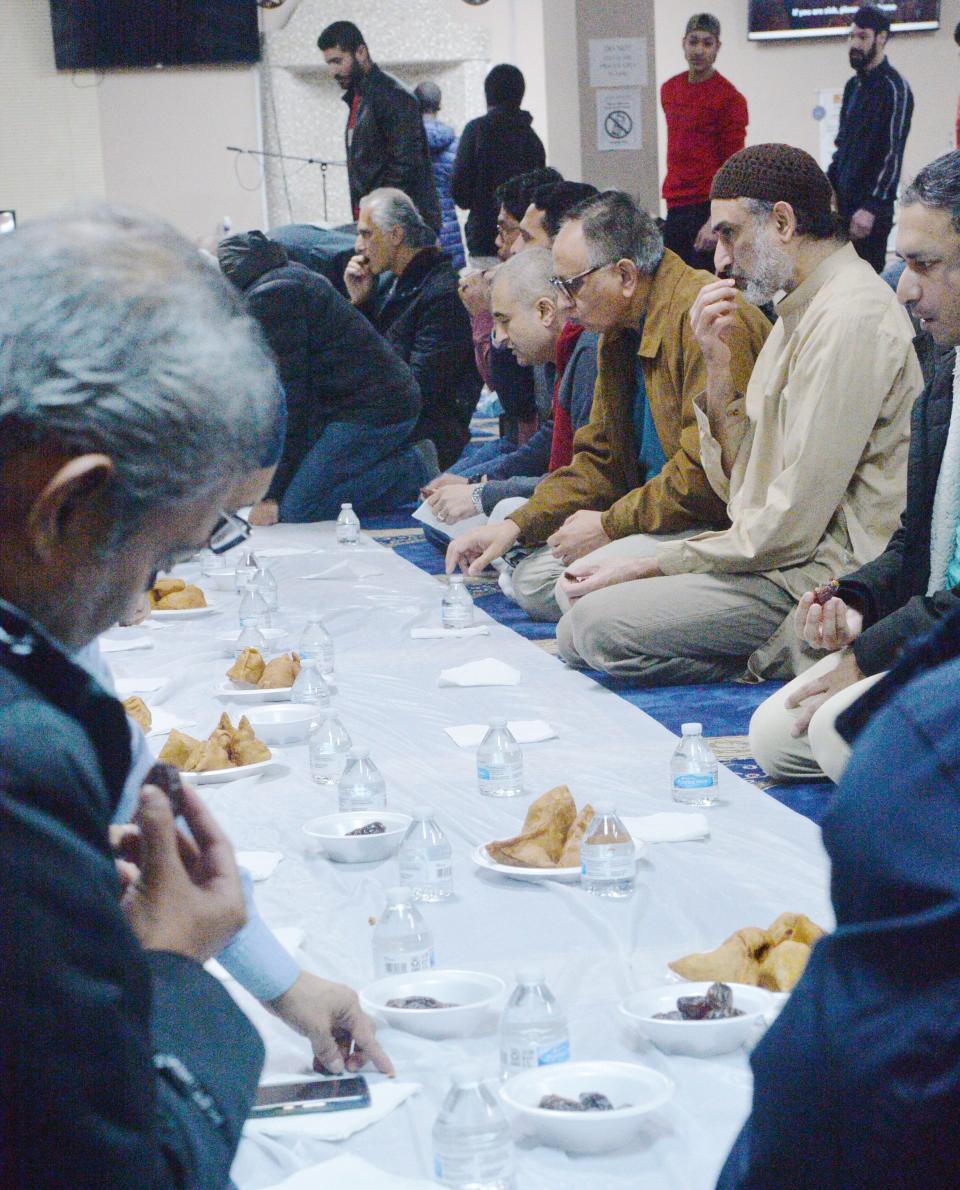Ramadan in Erie, a reflection on fasting, acceptance, and the New American experience
My name is Niken Astari-Carpenter. I am originally from Indonesia, a country with the highest Muslim population in the world. Indonesia is located right on the line of the equator. That makes the daytime and the nighttime pretty much equal there — 12 hours per day all year long. That's obviously very different than Erie, where the length of the day and the night changes quite a bit throughout the year. These time changes affect the length of the fasting period for Muslims in Erie during Ramadan.
What is Ramadan? Fun fact: In Islam, we also have 12 months (like the Gregorian calendar) but rather than using the sun, Islam uses the lunar calendar. Ramadan is the ninth month of the Islamic calendar, and it is followed by Shawwal, when Muslims celebrate Eid Al-Fitr. However, since the moon's phases are being used, months in the Islamic calendar shift throughout the year following the lunar cycle. Unlike Christmas, which always falls during winter on Dec. 25, Ramadan and Eid Al-Fitr will sometimes be in the summer, then move up to spring, winter, fall, and so forth.

During Ramadan, Muslims observe fasting from the dawn (specifically right before sunrise) until sundown for 30 days in a row. In 2011 when I migrated to Erie, Ramadan occurred in the summer. The fasting period was between 19 to 21 hours a day — very long compared to my usual 12 hours fasting when I was in Indonesia. Luckily, this year Ramadan falls in the spring, so the fasting period is only between 12 to 14 hours a day.
More: Muslim artists celebrated in Erie music videos released for holy month of Ramadan
Besides giving up food, drink (even water) and intimacy during the day, Ramadan also encourages Muslims to contemplate. You're probably aware that these traditions of fasting and contemplation during a certain period of time are not only observed by Muslims. Abrahamic religions all have similar traditions. Buddhist, Hindu and Baha'i also have their own practices of fasting and contemplation.

This reminds me of my conversation with Sr. Rosemary O'Brien, SSJ, during Lent in March. I asked Sr. Rosemary about what she gave up for Lent. She said, "I don't give up. I give in." Her answer warmed that cold snowy night. OK, this may be a bit of "TMI," or too much information, but for the past several months, I have been facing challenges that have made me want to give up. But Sr. Rosemary reminded me to give in, meaning to completely submit to the will of God, which is what "Islam" literally means.

As I wait for the "iftar" (breakfast) time, I take a walk on Presque Isle. Even with all the things bouncing around in my mind, I still see the trees that are soaking wet; they're budding now. I am envious of those trees! Those trees "give in" — they let go of their leaves during the fall, leaving branches and roots behind. Yet, the more they let go, the more beautiful they are. When the snow sits on their branches, they become solemn and elegant. Those trees do not just "give in," they also have faith. They have faith that in the spring they will blossom again. God, ya Allah, can I have faith and spirit to give in like those trees?
More: Sheikh Mazin Alsahlani: Worship of God provides help and hope in difficult times
Ramadan and Eid Al-Fitr in Erie always make me long for my family and friends in Indonesia. You can't really feel all the festivity of Ramadan or Eid Al-Fitr here. Again, unlike Christmas which is a national holiday in America, we Muslims still have to work on the day of Eid or use our vacation time if we want to take the holiday off. Times like these make me feel that I need to talk to God even more: "God, ya Allah, do I really belong here?" You probably wonder why I asked that question. Well, it's because I've been working on creating a more welcoming community in Erie for the past several years and I even brought Erie to be a certified welcoming city; however, there are still people who questioned my capabilities just because English is my second language and/or I don't look like them.
As soon as that question pops in my head, I see a bird flying to an electric pole. Its nest is there, inside the electric pole. You all know that a bird's natural nest isn't inside an electric pole, yet it survives inside an electric pole. It even has baby birds. Amazing! That bird reminds me of the spirits of refugees and immigrants coming to America. It's sad that people sometimes forget that United States of America is an immigrant country — what an irony!
As Ramadan nears its end, I will keep these reflections, lessons that I have learned from the trees and the bird. Next time when I'm down and I ask where God is, I will recall what my Benedictine sisters shared with me from the Rule of Benedict, "We believe that the Divine Presence is everywhere."
Niken Astari-Carpenter is the New American liaison for the city of Erie.
This article originally appeared on Erie Times-News: Niken Carpenter reflects on Ramadan, the immigrant experience in Erie

